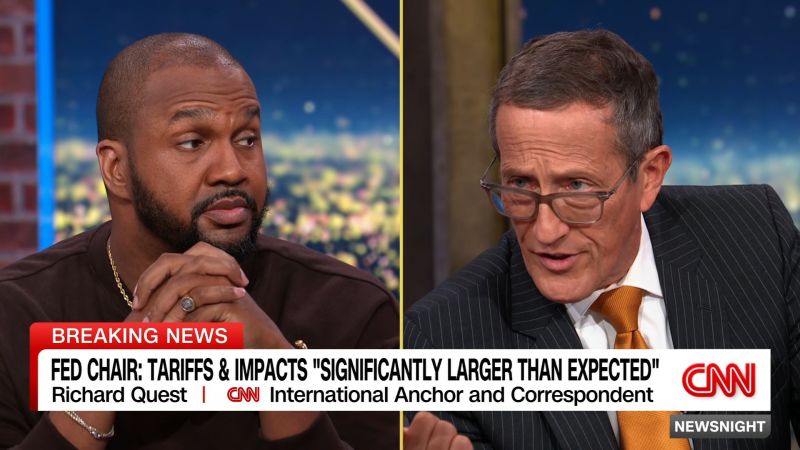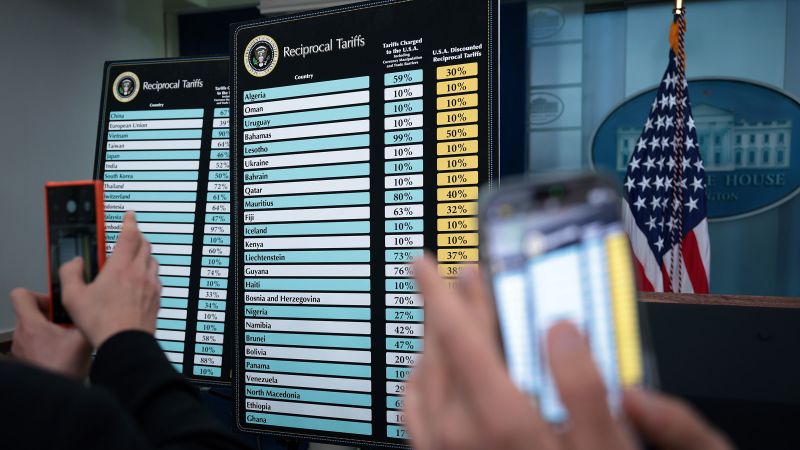Analysis and Impact of Trump's Proposed Tariffs on Global Trade

The global economic landscape is in turmoil as the implications of former President Trump's sweeping trade tariffs ripple across markets and nations. With the imposition of a baseline 10% tariff on goods from all countries, and significantly higher rates for nations deemed "worst offenders," the world is bracing for potential trade wars and economic disruption. Let's delve into the multifaceted consequences of these tariffs, examining their impact on consumers, industries, and international relations.
As Trump's "Liberation Day" tariffs came into effect, stock markets worldwide experienced a dramatic downturn. The UK's FTSE 100 suffered its worst daily drop in over five years, while major US indexes plummeted to levels not seen since the COVID-19 pandemic. Experts estimate that trillions of dollars have been wiped off the global stock market's value since the announcement, underscoring the immediate and severe impact of the tariffs.
Van Lathan of CNN points out that the potential ramifications of these tariffs on regular people are not being adequately addressed. While economists and market analysts dissect the data, the average consumer remains largely uninformed about how these tariffs will affect their wallets. Higher prices on imported goods, from electronics to clothing, are expected, potentially leading to reduced purchasing power and economic strain for households.
China has already responded to the U.S. tariffs by imposing a 34% tariff on all products imported from the United States. This tit-for-tat escalation raises concerns about a full-blown trade war, with countries like Bolivia warning of severe economic repercussions and urging a collective response from the international community.
The United Kingdom, facing a 10% tariff on its exports to the US, is carefully considering its response. Prime Minister Sir Keir Starmer has engaged in discussions with international leaders, emphasizing the need to avoid an all-out trade war. Experts predict that the tariffs could shave off up to 0.5 percentage points from the UK's already modest economic growth projections.
The Trump administration's formula for calculating tariff rates has come under scrutiny for its simplicity and potential for arbitrary outcomes. Based on the trade deficit between the US and each country, the formula has several variables that can significantly alter the resulting tariffs. For instance, whether or not services are included in the trade deficit calculation can dramatically impact tariff rates for countries like Bermuda and Switzerland.
India's renewable energy sector is also closely watching the tariff developments. While the sector may not be immediately disrupted, experts emphasize the growing need for India to strengthen its domestic capacity and cost competitiveness. The tariffs could, in fact, present an opportunity for Indian companies to increase their exports to the US, particularly in light of existing barriers on Chinese imports.
Amidst the tariff turmoil, Bitcoin has emerged as a potential safe haven. Michael Saylor, Executive Chairman of Strategy, argues that Bitcoin is immune to tariffs due to its digital nature. Unlike physical goods, Bitcoin transactions occur electronically, making them difficult to tax or halt at border points. While some worry that the tariffs could indirectly affect Bitcoin by reducing consumer and company income, the cryptocurrency has remained relatively stable.
Chinese AI company DeepSeek appears unfazed by the tariffs, largely due to its focus on digital AI models and software rather than physical goods. While the US government could potentially impose restrictions on the use of DeepSeek's AI models or data transfers, traditional tariffs are less relevant to the company's core products.
The long-term consequences of Trump's tariffs remain uncertain. While the administration has expressed a willingness to negotiate deals with countries that offer something "phenomenal," the potential for escalating trade wars and economic disruption is a real concern. As the world grapples with these new trade realities, businesses and consumers alike must adapt to a rapidly changing economic landscape.







